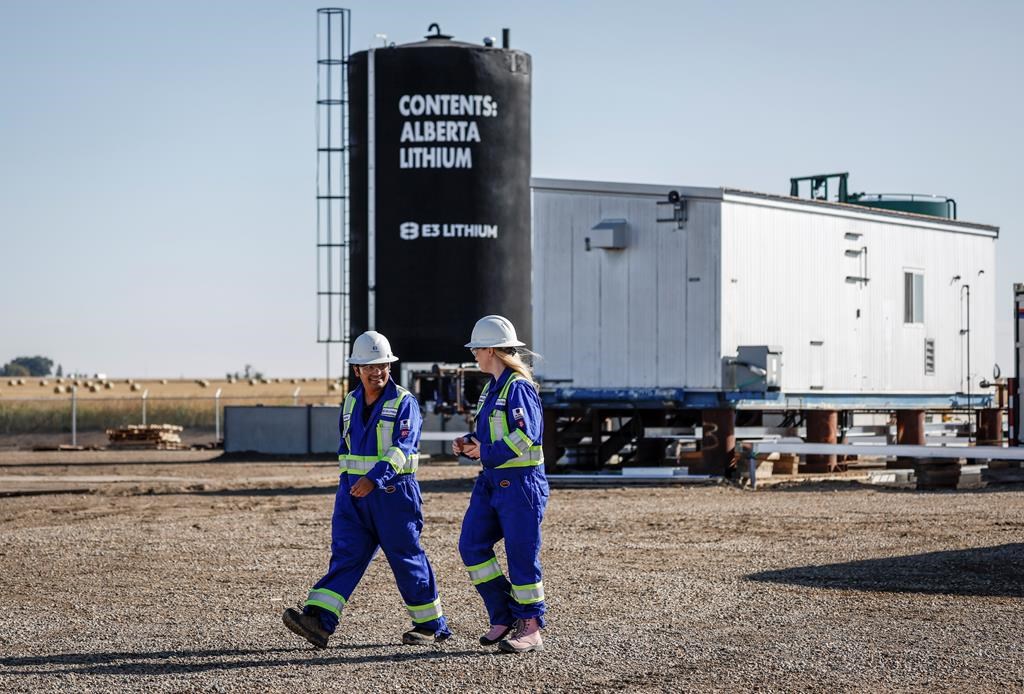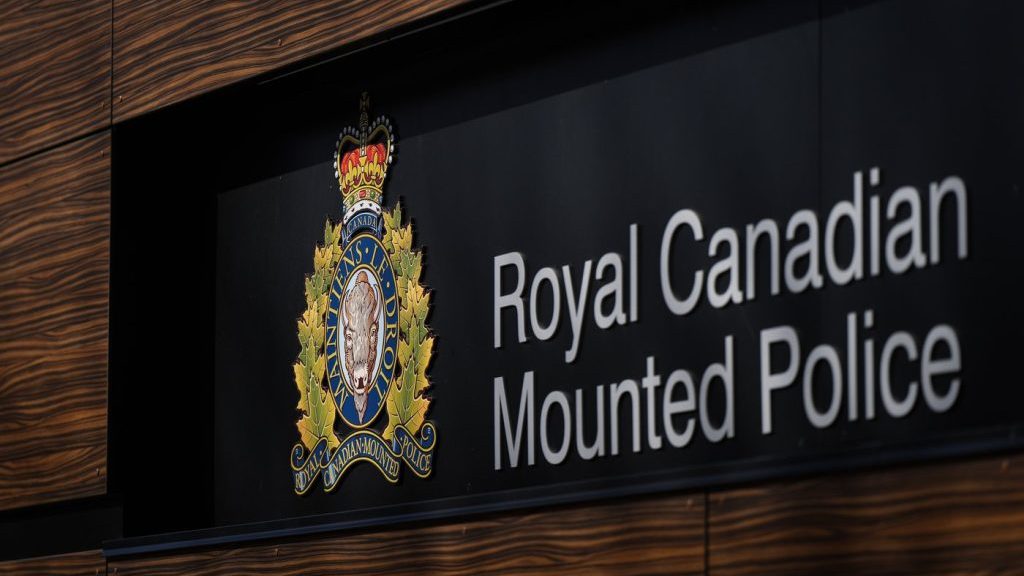Alberta enters global lithium race with opening of first extraction pilot project

Posted Sep 7, 2023 05:45:10 PM.
OLDS, Alta. — Alberta got out of the starting gates in the global critical minerals race Thursday with the opening of the province’s first lithium extraction pilot project.
At his company’s site just east of the town of Olds in central Alberta, E3 Lithium CEO Chris Doornbos called the occasion the start of a “new era” for the province’s traditionally oil-and-gas-dominated economy.
“Without forsaking our past, the lithium industry opens up a whole new industry, using our existing skill set,” Doornbos said.
“The opportunity to be a global leader, and to make Alberta a lithium jurisdiction, is really and truly here.”
Lithium, a light metal, is in demand around the globe right now because it is a key component in electric vehicle batteries.
Currently, the world’s biggest lithium producers are Australia, Chile and China. However, it has long been known that Alberta is home to one of the world’s largest lithium deposits, located deep underground in the Leduc geological formation, which is also a major oil-and-gas producing area.
Until recently, there has been little interest in developing this deposit, but the growth in electric vehicles and exponential demand for lithium-ion batteries has changed that. Lithium is now a key focus of the government of Canada’s $3.8-billion, eight-year critical minerals strategy, which aims to increase domestic extraction and production of the metal along with other previously under-developed resources such as cobalt, copper, titanium and zinc.
E3, a publicly traded junior resource company headquartered in Calgary, has quickly become a leader in the space. It holds the mineral rights to an estimated 16 million tonnes of lithium resource, and it has developed a made-in-Alberta technology that extracts the lithium that occurs naturally within oilfield brines.
The company plans to pilot its technology over the course of this fall, with the goal of opening a full-scale commercial plant in the same area by late 2026.
That facility could process up to 150,000 tonnes per year of battery-grade lithium product, Doornbos said, ready to be sold directly to battery producers and EV companies.
While Alberta’s lithium industry is still in its infancy, proponents say it’s a natural fit for the province. Its lithium resource is located in the same oilfield formation as Leduc No. 1, the historic gusher that kick-started the province’s oil-and-gas industry in 1947.
And the extraction process for lithium is not that technically different from oil and gas extraction, meaning the province’s oil-and-gas engineers and geologists “fundamentally understand” what it’s all about, Doornbos said.
In fact, Doornbos said he expects to see traditional oil-and-gas companies increasingly looking to lithium as another potential revenue source. Imperial Oil Ltd., for example, is already one of E3’s investors, and U.S. oil giant Exxon Mobil is developing its own lithium project in Arkansas.
“I think the oil and gas companies are very closely watching the lithium space,” Doornbos said.
“I could see them partnering (with lithium companies), but I could also see them, as Exxon is already doing, doing it themselves and creating a business unit and making lithium.”
While E3 is the first lithium company to get an extraction project up and running in Alberta, there are a handful of others with projects still in the planning phases.
Brian Jean, Alberta’s Minister of Energy and Minerals, said his government wants to see the province become a “preferred producer and supplier” of industrial minerals and critical metals.
“Increased global demand for electric vehicles and battery storage are going to lead to Alberta having another resource – not just oil, not just natural gas – but another resource to sell to the world,” he said.
Both the Alberta and federal governments have provided funding to E3 Lithium, and the federal government has also announced the creation of a 30 per cent tax credit for critical mineral exploration projects.
The federal government has also announced hundreds of millions in government subsidies in an effort to attract battery production and EV manufacturing to Canada. (One example is the federally subsidized electric vehicle battery plant that is currently under construction by Stellantis near Windsor, Ont.)
Doornbos said Canada will need to be “extremely aggressive” if it wishes to compete with the United States on electric vehicle and battery production going forward. He said the incentives and subsidies that country is dishing out to support the build-out of an American EV supply chain have put it ahead of the game.
But he said when it comes to the natural resources themselves, he’s confident Canada, and Alberta in particular, can win.
“The critical minerals industry will build off the oil and gas industry we’re so well known for,” Doornbos said.
“I think from the broader Alberta perspective, it’s going to be a lot more than just E3. It (critical minerals) is going to be an industry to itself.”
This report by The Canadian Press was first published Sept. 7, 2023.
Companies in this story: (TSXV:ETL)
Amanda Stephenson, The Canadian Press








